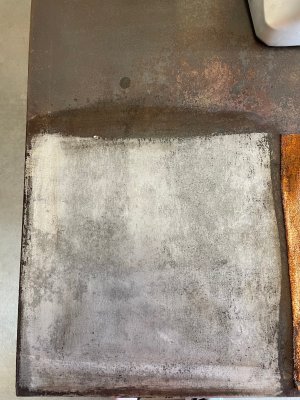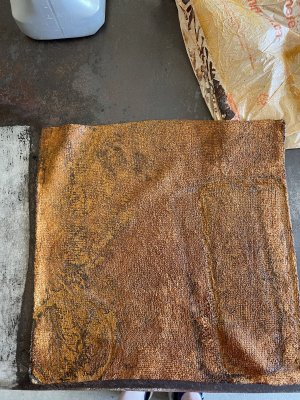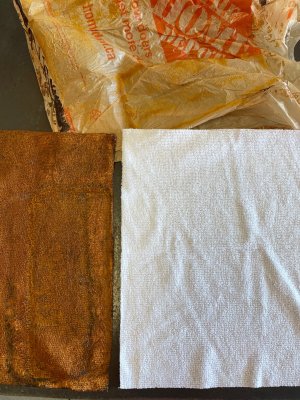Any one got a pet method of mill scale removal ?
I've got a welding / fab table I made up, the top is a circle of 1" thick AR 400 steel about 36" dia. Really hard stuff - I've drilled a couple holes in it and they were a real struggle ! Of course there's the mill scale too - getting a good ground is kind of hit or miss ! Tried grinding some but that's not easy either and you've got to use a wheel that's so aggressive that it gouges up the surface - was hoping to keep a nice smooth surface (and did I say I hate grinding dust ?).
I've heard of soaking with a vinegar / salt solution, also heard of molasses. I've tried the vinegar / salt - it does work but slow and messy (small pieces in a pan). Evaporust ?
I've got a welding / fab table I made up, the top is a circle of 1" thick AR 400 steel about 36" dia. Really hard stuff - I've drilled a couple holes in it and they were a real struggle ! Of course there's the mill scale too - getting a good ground is kind of hit or miss ! Tried grinding some but that's not easy either and you've got to use a wheel that's so aggressive that it gouges up the surface - was hoping to keep a nice smooth surface (and did I say I hate grinding dust ?).
I've heard of soaking with a vinegar / salt solution, also heard of molasses. I've tried the vinegar / salt - it does work but slow and messy (small pieces in a pan). Evaporust ?



